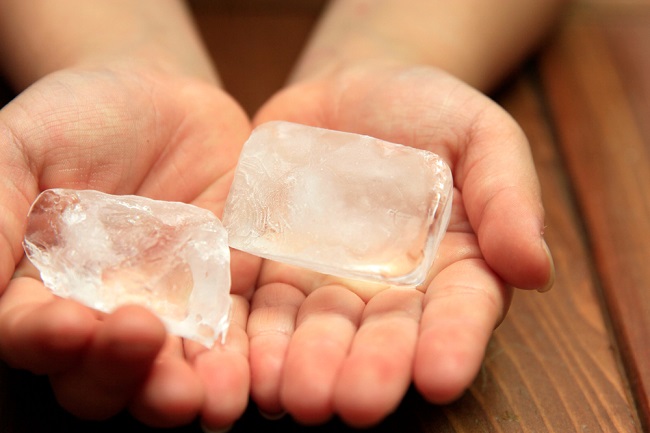A pediatric nephrologist plays a role in diagnosing and treating various kidney problems in children, infants, and adolescents. Handling kidney disease in children is important to do as early as possible so as not to cause severe kidney damage.
A pediatric nephrologist is a pediatrician who specializes in knowledge about diseases and disorders of kidney function in infants, children, and adolescents. This subspecialist doctor can also diagnose and treat disorders of the urinary tract and bladder.

Not only that, pediatric nephrologists can also treat problems with the amount of fluid and electrolyte disturbances in infants and children.
Conditions Treated by Pediatricians Nephrologists
If your child has a kidney function disorder or a urinary tract disorder, you may be advised by a general practitioner or pediatrician to take him or her to a pediatric nephrologist.
Pediatric nephrologists can treat a variety of diseases that affect the kidneys and urinary system in infants, children, and adolescents, such as:
- Infections of the kidneys and urinary tract, eg pyelonephritis and UTI
- Kidney failure, both acute and chronic renal failure
- Autoimmune diseases, eg glomerulonephritis and lupus nephritis
- Kidney stones
- Hypertension in children
- Hydronephrosis
- Congenital defects or abnormalities in the kidneys, such as impaired kidney formation, renal dysplasia, and polycystic kidney disease
- Diabetic nephropathy, which is kidney disease caused by diabetes
- Tumor or kidney cancer
- Urinary disturbances, such as frequent urination or urinary incontinence
- Nephrotic syndrome and nephritic syndrome
- Amyloidosis
Not only that, pediatric nephrologists also have the competence to treat other kidney problems in children, such as kidney injury, electrolyte disturbances, acid-base balance disorders, and kidney damage due to poisoning, either due to side effects of drugs or chemicals.
Actions Performed by Pediatric Nephrologists
To determine the diagnosis and severity of kidney disorders in children, pediatric nephrologists can perform an examination consisting of a physical examination and a series of supporting examinations, such as:
- Blood and urine tests, including kidney function tests
- Blood and urine culture
- Blood gas analysis
- Radiological examination, such as X-rays, ultrasound, CT scan, MRI, and urography
- Kidney biopsy
After the diagnosis of kidney disease is known, pediatric nephrologists can treat the disease and restore kidney function with the following steps:
1. Administration of drugs
Pediatric nephrologists can give medicines to treat diseases or disorders of the child's kidneys.
For example, doctors may prescribe antibiotics to treat problems with the kidneys and urinary tract, blood pressure-lowering drugs and diuretics to control blood pressure, and the hormone erythropoietin in cases of severe kidney failure that has complicated anemia.
2. Fluid therapy
Pediatric neurologists may also recommend hospitalization for children, infants, or adolescents with kidney problems. During treatment, a pediatric nephrologist can provide fluid therapy through an IV. The choice of infusion fluid will be adjusted to the type and severity of the patient's illness.
3. Dialysis or hemodialysis
To repair and replace the kidney function of a baby, child, or teenager that has been damaged, for example due to kidney failure, a pediatric nephrologist can perform dialysis.
The type of dialysis method and how often dialysis needs to be done will be adjusted to the severity of kidney disease and the patient's general condition.
4. Kidney transplant
In cases of severe and permanent kidney damage, a pediatric nephrologist may suggest treatment in the form of kidney transplant surgery. This operation is usually only done after the patient gets a suitable kidney donor.
In addition to the above medical treatment methods, pediatric nephrologists may also provide education to the patient's parents so that the patient can lead a healthy lifestyle, for example:
- Eat a balanced nutritious diet
- Reducing excessive sugar and salt intake
- Maintain ideal body weight
- Check your health condition regularly to the doctor
When Should Children See a Pediatric Nephrologist?
Children, infants, or adolescents should see a pediatric nephrologist if they experience any of the following symptoms:
- Bloody urine
- Difficulty urinating or not urinating at all
- The body feels weak and looks pale
- Swelling on the body and face
- Difficulty sleeping and often restless
- Don't want to eat and drink
- High fever
- Pain when urinating
In addition, the general practitioner or pediatrician may also suggest that the child be examined by a pediatric nephrologist if he suffers from certain diseases, such as diabetes and kidney disorders, or has a family history of kidney disease.
Preparation Before Consultation with a Pediatric Nephrologist
If you want to take your child to a pediatric nephrologist, you are advised to:
- Record the symptoms and complaints experienced by the child
- Inform if there is a history of kidney disease in the family
- Bring the results of previous examinations, if any
- Inform the child, drug, supplement, or herb that is being consumed
- Explain to the doctor about the mother's medical history during pregnancy, including whether the mother has taken certain drugs during pregnancy
If your child has symptoms, complaints, or conditions as mentioned above, don't hesitate to take him to a pediatric nephrologist for proper examination and treatment. In choosing a pediatric nephrologist, parents can ask for a referral or ask a pediatrician.









